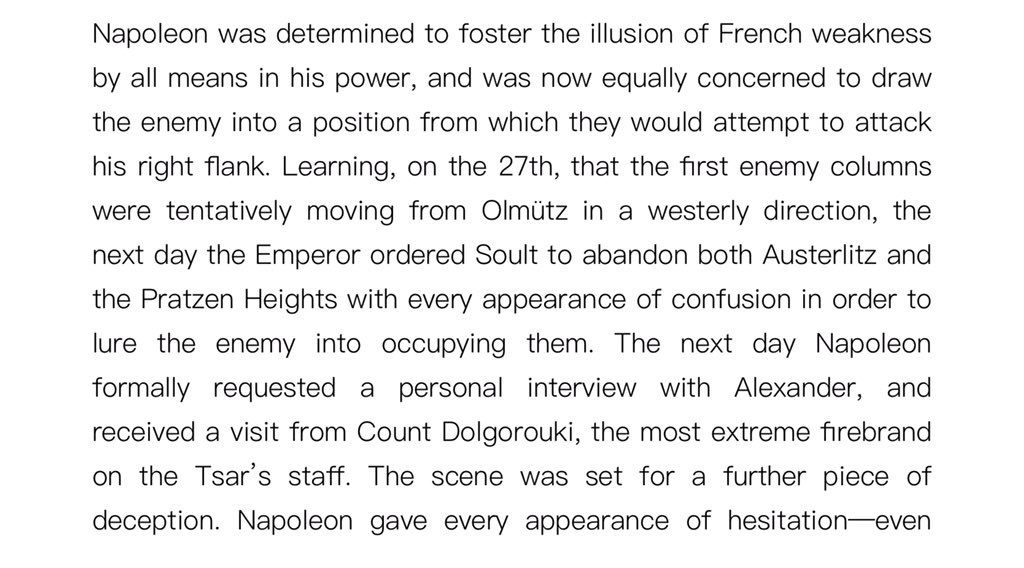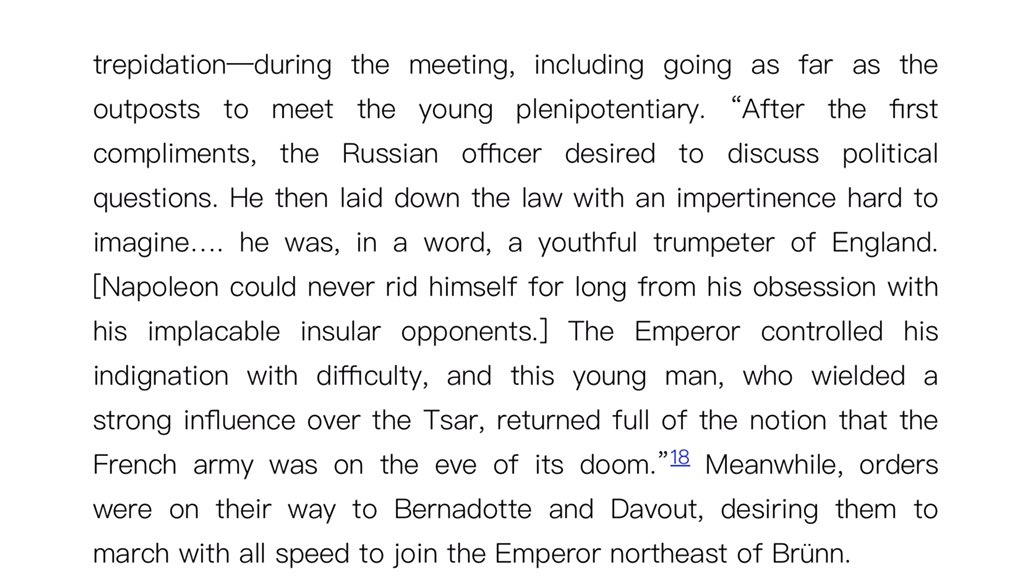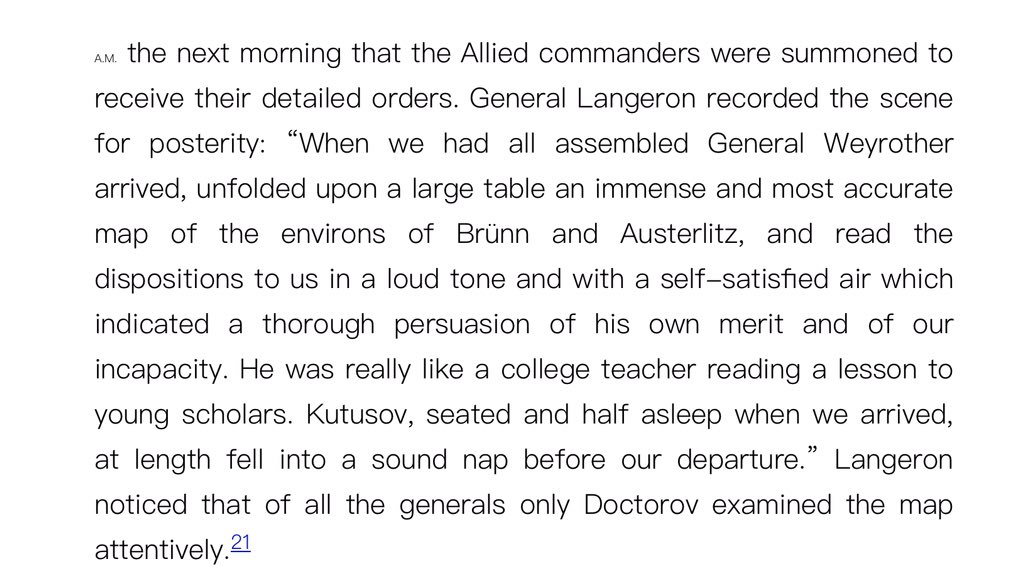#OTD in 1805 Napoleon defeated the combined Austrian and Russian armies at Austerlitz (in present day Slovakia). This became known as the Battle of Three Emperors, because the in addition to Napoleon, emperors Alexander and Francis were present. Of all of Napoleon’s many
victories, this was the one he was most proud of (so that he refused to share the credit with any of his marshals, unlike in the case of most of the other battles). The reason was not only the nature of the opposition (Europe’s two greatest monarchs) but also the nature of the
battle itself. Napoleon liked to create the image of himself as a great planner, and suggest that his victories were due primarily to his planning and foresight. In reality, he was more of a great improviser, able to understand changing circumstances quicker and adapt to them
better than his opponents. But Austerlitz was one because of a brilliant plan and deception (some woukd also say the stupidity of the allied commanders, the foremost of which were Kutuzov on the Russian side and general Weyrother on the Austrian).
The details of the battle are complicated, but Napoleon’s basic idea was simple. First, he wanted his enemies to become overconfident, so that he could more easily lead them into a trap.
This was achieved partly by acting and pertly by manoeuvre.
The first part was done during
This was achieved partly by acting and pertly by manoeuvre.
The first part was done during
a meeting between Napoleon and a young, arrogant Russian aristocrat Count Dolgoruki, whom Napoleon wanted to persuade of his weakness and lack of resolve. Here is David Chandler:
Napoleon chose the place for the batte in an are where there was a hamlet of villages dominated by high ground wher the a villager named Pratzen was located. Normally any general want to control such a high point but Napoleon “tamely conceded it” to the allies.
His idea was to
His idea was to
persuade the enemy to attack his right flank, which he made deliberately weak. As more and more Russian troops would be drawn into the attack, they would weaken their center at Pratzen, which at a suitable moment would be seized by French troops until then hidden from view.
The key roles were assigned to marshal’s Davout and Soult. Davout was to pretend to be desperately fighting to hold his position but gradually retreating, drawing more and more of the enemy out of Pratzen, while Soult was to lie in wait and lead the crucial attack on Pratzen.
The battle largely went according to plan and ended in a decisive victory: the allies, who had substantial numerical superiority, lost about about 15,000 dead and 12,000 prisoners - a third of their total strength while the French had around 1,300 dead andy 7000 wounded.

 Read on Twitter
Read on Twitter




